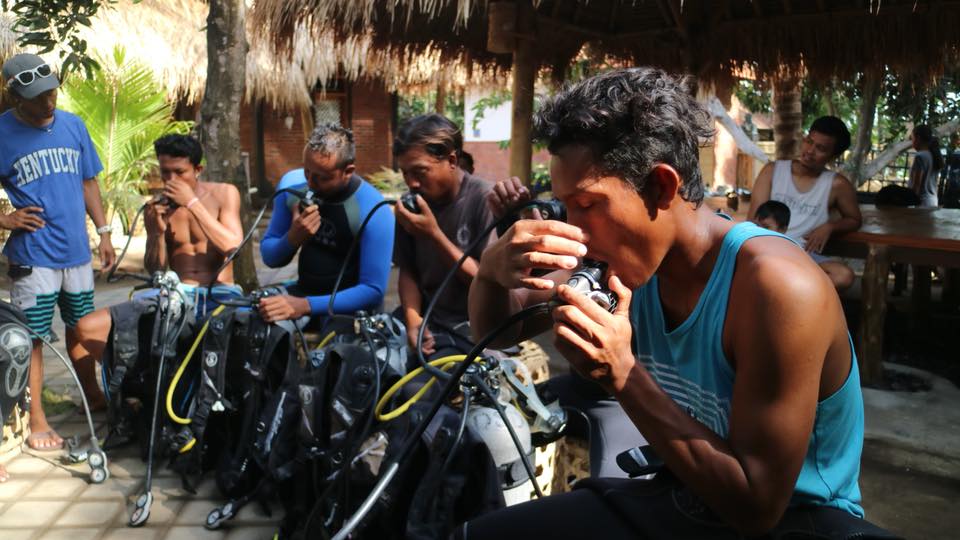The North Bali Reef Conservation, co-founded by Bournemouth environmental science student Zach Boakes, has had a successful first summer promoting Indonesian marine conservation.
Starting the project this July, Mr Boakes had previously spent time in the summer of 2016 teaching drums at a school in the village of Tianyar.
Having started his studies in environmental science, Boakes felt he could use this expertise to help the village and agreed to travel out the following year and spent much of his first year at university researching marine conservation projects.
Explaining why the project is so important, Mr Boakes said: “The main problem with the coral reefs is that they’re degrading – the fisherman take all the fish, put down their anchors and destroy all the coral.
“It’s very destructive and not sustainable and so one of our main focuses is to educate the fisherman – how they can still make a living without destroying the reef.”
Changing mind sets
The worry for Boakes is that the village will be left without a way for future generations to making a living from the area’s ocean.
The project aims to combat this with better education. Training the fisherman to dive and conserve the reef, as well as teaching local school children about the importance of marine conservation.
“But the most important thing is building artificial reefs – providing structures for fish to seek shelter in where coral reefs have been destroyed,” Mr Boakes said.
The artificial reefs provide habitats for the coral to grow and fish to shelter, made possible by the hard work of the team and locals, as well as the backing of local government funding.
The trade off
The trade off between protecting the environment and making as much money as possible is not just felt in Indonesia, but also the UK. “There is a real problem in Poole harbour at the moment,” Mr Boakes said.
“Farmers use fertilisers to grow their crops – these fertilisers cause poisonous algae to grow which is detrimental to marine life.
“The more fertilisers farmers use the better yield they get, the more money they make.
“Environmental protection is at the bottom of so many people’s priorities for things that they are concerned about, but in my opinion it is something that everyone should think more about and become more aware of.”






